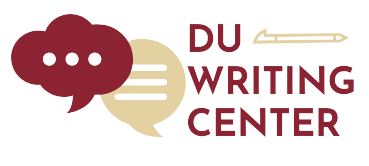A Creative Writing Exercise: What Does a Linguistically Equitable World Look Like?
By Jasmine Saucedae
Originally published February 25, 2022

Linguistic Justice is a movement toward equitable language practices that could result in making this dream a reality. Linguistic justice may be attained large-scale by creating a neutral language that everyone can communicate by, or on a smaller-scale by providing multiple translations of texts in a classroom setting. Policy makers, linguists, and dreamers alike are all imagining different ways we can see linguistic justice materialize in our lifetime.
For example, we can see the theoretical practice of future-making in Sergi Morales-Gálvez’s article “Living Together as Equals: Linguistic Justice and Sharing the Public Sphere in Multilingual Settings.” Morales-Gálvez argues that a shared public sphere may be created where public deliberation, political equality, and togetherness can all be enacted without the risk of language domination by the ‘strong,’ or commonly used, language of a group or state. They propose language classes and other curricula be added to existing school structures using a ‘weak,’ or formally underused/minority, language. This proposal aims to speculate how our world may be structured to make language use a wholly equitable practice. Think what a world would look like where every class is conducted in French? Or Spanish? Or another language besides English in the U.S.? Consider what policies might help bring this plan to life in your space (classroom, school, work, etc.)? What would you have to keep in mind as these changes were implemented?
Similarly, Gabriele Iannàccaro and Vittorio Dell’Aquila write in “On Linguistic Abilities, Multilingualism, and Linguistic Justice” how citizens learning multiple languages may work toward linguistic justice. In this article, the authors explore the potential benefits and ramifications of everyone learning multiple languages. For example, Iannàccaro and Dell’Aquila question how citizens learning multiple languages, formally, may remove cultural competency of the language. Possibly, formally acquired second language learners may not be able to communicate with native speakers of said language since there may be a variance in the formal training versus the nuances learned and used by native speakers. How might people be challenged in learning another language? What countries are already doing this? Does it help bridge a gap in language?
Taking these two thought-experiments into consideration, what proposal do you have in mind? Consider the questions above and use the ones below as prompts for drafting your plan for a linguistically just world. Send your proposal to duwritingcenter@gmail.com for a chance to win a prize:
Would your plan be contained within a school, state, nation, or expand globally?
How would you recommend prioritizing one language over another?
What are the ethical consequences involved in choosing a ‘strong’ or ‘weak’ language?
How can you see your linguistically just future taking shape?
As you reflect on these questions, know that the DU writing center is working toward creating linguistically-just spaces through centering and platforming the voices of our community and perspectives that may otherwise be obfuscated. In conversations and interviews with members of the DU community, we ask students, faculty, and staff about their thoughts on language as it relates to identity, community, and belonging. Check out our upcoming blog series, “Center Action,” and podcast, “Center Voices,” to learn about how we explore the dynamics of language in the academic and professional setting to imagine futures where linguistic justice can become a reality.
